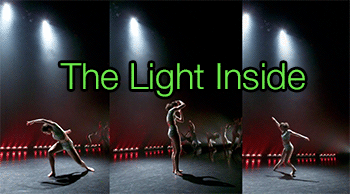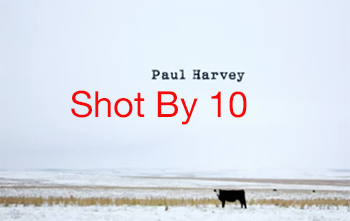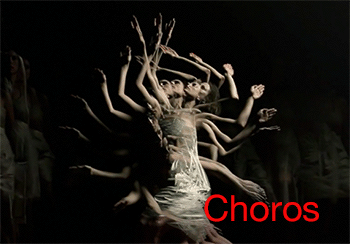
Choros
Choros from Michael Langan on Vimeo.
Watching this film the words mesmerizing, incredibly beautiful, and fluid spring immediately to my mind. This is one of those artistic creations that make me say to myself “Damn, another one I wish I had created!”
The film, directed by Michael Langan and Terah Maher, combines music, dance, and image multiplication to create a film that enhances our perceptions of motion. “Choros” delivers a visually mesmerizing narrative in three movements by following a dancer’s (Maher) experience of discovery, euphoria, and rebirth through this surreal phenomenon, and featurs music from Steve Reich’s “Music for 18 Musicians.”
ABOUT THE TECHNIQUE
“Choros” is an experimental film steeped in tradition, modernizing a visual echo technique developed for scientific study in the 1880s.
In the late nineteenth century, a photographic technique called “chronophotography” began to develop, whereby multiple photographs would be taken in rapid succession to study the movement of a given subject. Eadweard Muybridge famously filmed a horse in motion in 1878, providing the world with its first taste of motion pictures when the images were displayed on a spinning zoetrope.

The Horse in Motion by Eadweard Muybridge. “Sallie Gardner,” owned by Leland Stanford; running at a 1:40 gait over the Palo Alto track, 19th June 1878 Source=Library of Congress Prints and Photographs
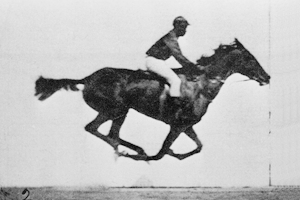
Frames 1-11 used for GIF animation, frame 12 not used.
Several years later, the French physicist Etienne-Jules Marey developed a stunning variation of this technique when he captured multiple poses of a subject over time onto a single frame of film, rendering a kind of visual echo. The nature of this process limited the subject matter to that which could be photographed in a black studio using stark lighting, to prevent overexposure of the background when multiple images are layered over one another.
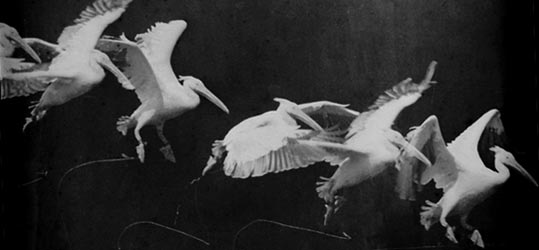
A photo of flying pelican taken by Étienne-Jules Marey around 1882
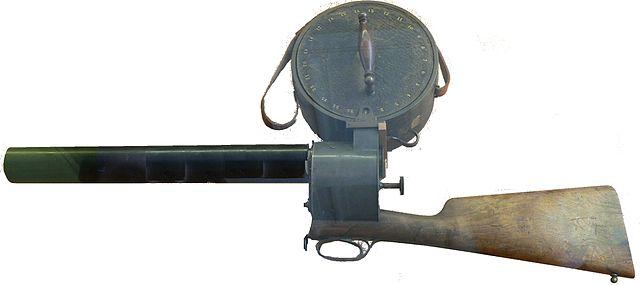
Marey’s photographic “gun.”
In 1968, just six years before Steve Reich began composing “Music for 18 Musicians,” Canadian filmmaker Norman McLaren adapted Marey’s layering technique to actual motion pictures, in a groundbreaking film entitled “Pas de Deux.” The additive nature of multiple exposures in chemically processed photography, however, likewise limited McLaren to the confines of a black box studio with high-contrast side lighting.
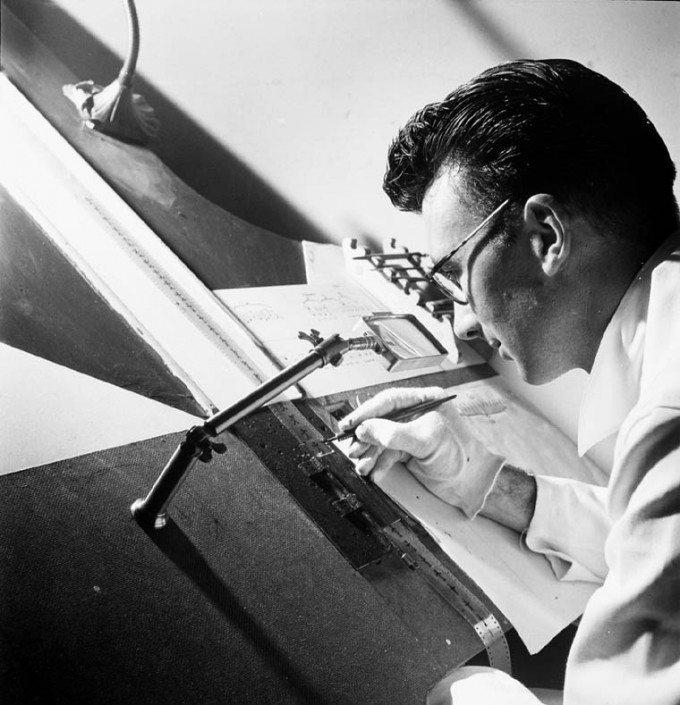
Norman McLaren, of the animation department, National Film Board of Canada, drawing directly on film in 1944.
With the making of “Choros” Michael Langan and Terah Maher revisit these technical innovations and attempt to contribute original innovations of their own. Using recent advancements in digital compositing, the technique developed for “Choros” introduces color, frees the film from the confines of a black studio, and allows the dancer to linger in one position without risk of overexposure, resulting in a variation of this historical technique that allows a degree of subtlety heretofore prohibited by technical limitations.
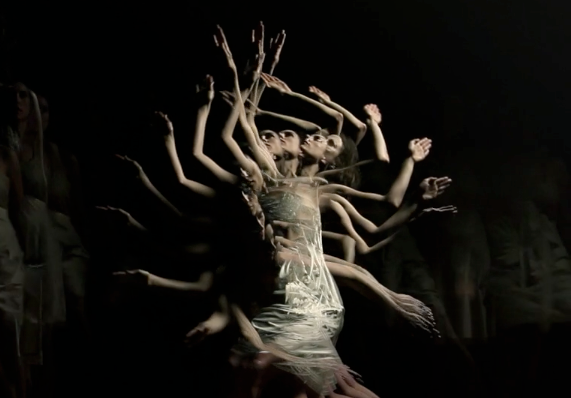
Created using Adobe After Effects as composites, there is very little slow motion used in the film and limited to some speed ramping at transitions toward the beginning. No green screen was used at all, though they did use some chroma keying in the outdoor shots. Good old-fashioned rotoscoping (No Plugins Used) with many layers using various blending modes and methods applied.
AWARDS
Coup de Coeur, Silhouette Film Festival / France
SCREENINGS
2013
Dance on Camera Festival / USA
Strange Beauty Film Festival / USA
Cinedans / The Netherlands
2012
Clermont-Ferrand International Short Film Festival / France / World Premiere
Clermont-Ferrand Highlights at Balagan / USA
Clermont-Ferrand Highlights at 92Y Tribeca / USA
Clermont-Ferrand Highlights at Muscate / Oman
Institute of Contemporary Art Boston / USA
Mecal International Short Film Festival / Spain
Tabakalera / Spain
Tiburon International Film Festival / USA
Athens International Film Festival / USA
Maryland Film Festival / USA
Experimental Film Festival Portland / USA
Rooftop Films / USA
Woods Hole Film Festival / USA
Guanajuato International Film Festival / Mexico
Topanga Film Festival / USA
ADF Screendance / USA
Le Cabaret Vert / France
One Reel Film Festival / USA
Sidewalk Film Festival / USA
Festival a Nous de Voir / France
Ottawa International Animation Festival / Canada
Beijing New Youth Film Festival / China
Silhouette Film Festival / France / Winner, Coup de Coeur Prix
Lille International Short Film Festival / France
INVIDEO / Italy
Australian Cinematheque / Australia
Short Shorts Film Festival / Mexico
Ft. Lauderdale International Film Festival / USA
Ravenswood International Film Festival / USA
Cucalorus Film Festival / USA
Ozu Film Festival / Italy
Court C’est Court! / France
Next Dance Cinema / USA
Centre National de la Danse / France
Other Images source: Wikipedia.org and are either public domain or covered under other permissions of use.
PLEASE RATE THIS STORY! [ratings]



